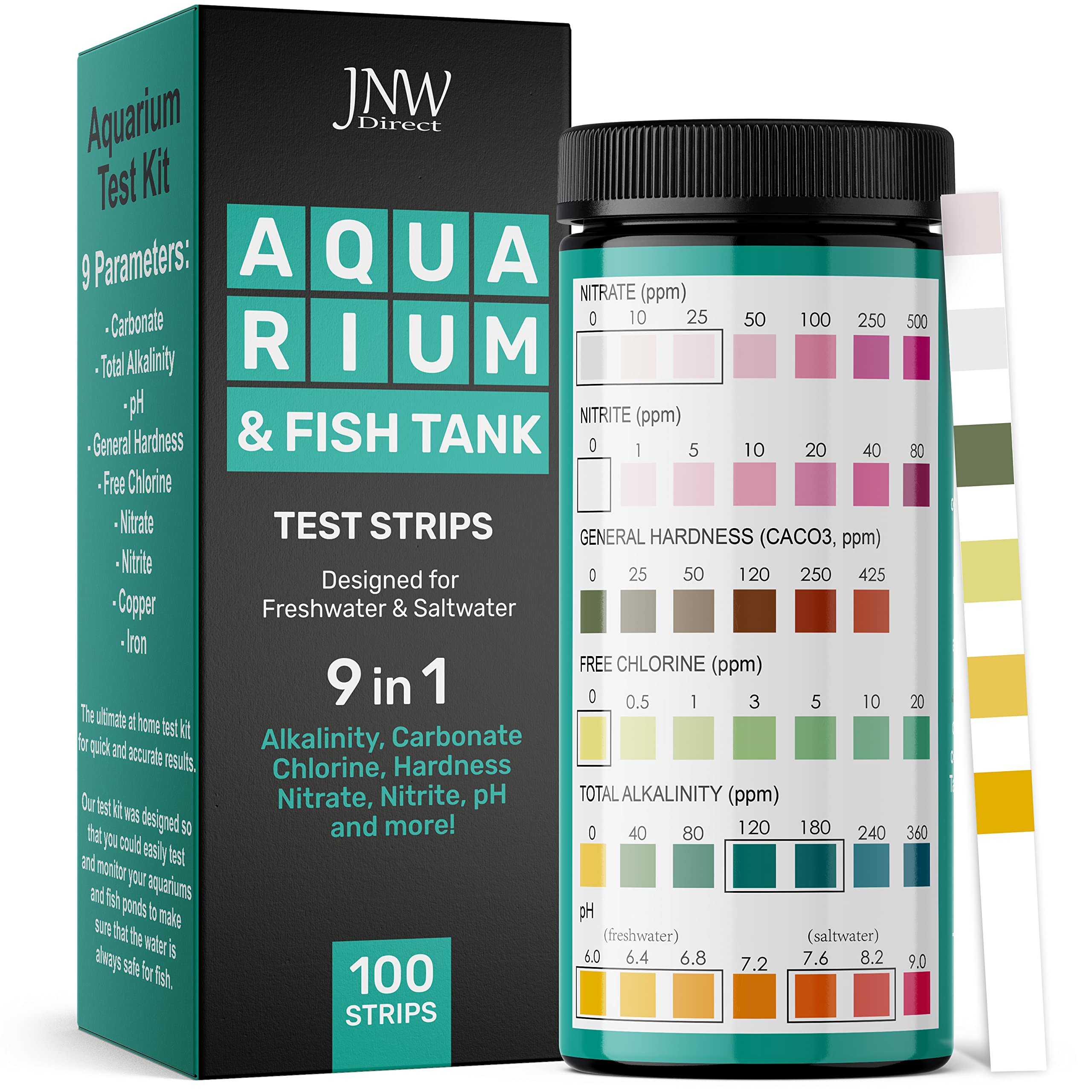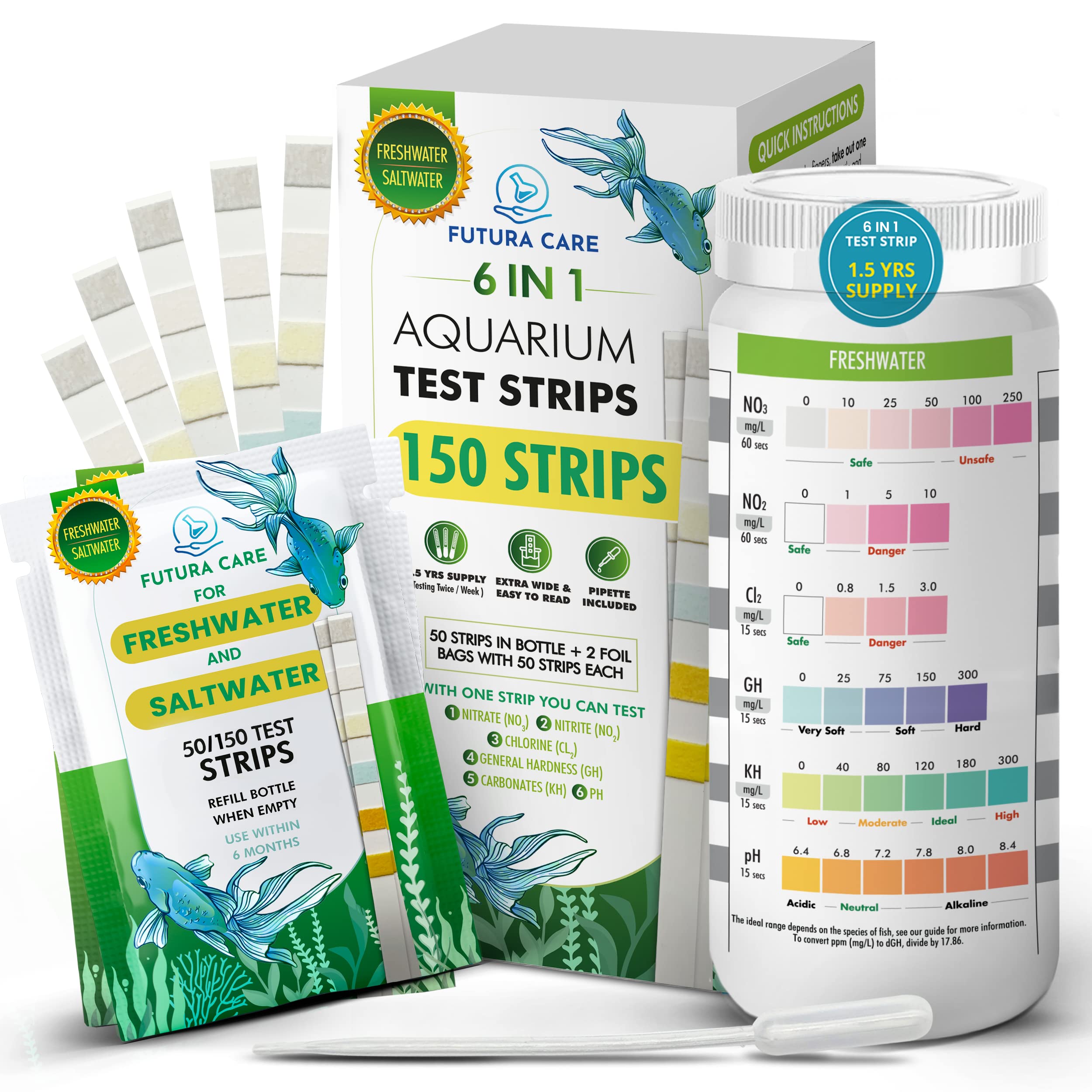Aquarium test strips are a crucial tool for aquarium enthusiasts to ensure the health and safety of their aquatic pets. But with so many different brands of test strips on the market, it can be challenging to determine which ones are accurate and reliable. This begs the question: are aquarium test strips accurate?
The answer is not a simple yes or no. While some test strips are more precise than others, there are several factors that can affect their accuracy. In this article, we’ll explore the science behind aquarium test strips and provide helpful tips for selecting and using the most accurate ones for your aquarium.
Aquarium test strips can be accurate, but it depends on the brand and quality. Some inexpensive test strips may not give accurate results, while more expensive ones from reputable brands can provide precise readings. It’s essential to follow the instructions carefully and to check the expiry date on the packaging. Additionally, it’s always a good idea to cross-check the results with another testing method to ensure accuracy.

Are Aquarium Test Strips Accurate?
Aquarium test strips are a convenient way to measure the levels of various chemicals in your aquarium water. They are easy to use and provide quick results. However, there is a lot of debate among aquarium hobbyists about their accuracy. In this article, we will explore whether aquarium test strips are accurate and how to use them effectively.
How Do Aquarium Test Strips Work?
Aquarium test strips work by using chemical reactions to change color in the presence of certain chemicals. Each strip is designed to measure a specific chemical or group of chemicals. For example, some test strips are designed to measure pH levels, while others are designed to measure levels of ammonia, nitrite, or nitrate.
To use a test strip, you simply dip it into the aquarium water for a few seconds and then compare the color of the strip to a chart to determine the level of the chemical being measured. The color on the strip should match the color on the chart to indicate the correct level of the chemical.
Factors That Can Affect Accuracy
While aquarium test strips are generally reliable, there are several factors that can affect their accuracy. One of the biggest factors is user error. If the test strip is not dipped into the water for the correct amount of time or is not read accurately, the results may be incorrect.
Another factor that can affect accuracy is the age of the test strips. Over time, the chemicals on the strip can degrade, making them less accurate. It is important to check the expiration date on the package and to use the strips before they expire.
Finally, environmental factors such as temperature and humidity can also affect the accuracy of the test strips. It is important to store the strips in a cool, dry place and to use them in a stable environment.
The Benefits of Aquarium Test Strips
Despite the factors that can affect accuracy, aquarium test strips are still a valuable tool for aquarium hobbyists. They are easy to use and provide quick results, allowing you to monitor the levels of various chemicals in your aquarium regularly.
Test strips are also affordable and widely available, making them accessible to hobbyists of all levels. They can help prevent problems in your aquarium by alerting you to any issues with the water chemistry before they become a problem.
Aquarium Test Strips vs. Liquid Test Kits
While aquarium test strips are convenient and easy to use, they are not always as accurate as liquid test kits. Liquid test kits require more steps and take longer to produce results, but they are generally more accurate and can measure a wider range of chemicals.
If you have a high-tech aquarium or are keeping sensitive fish or invertebrates, liquid test kits may be a better option. However, for most hobbyists, aquarium test strips are accurate enough to provide the information they need to maintain a healthy aquarium.
Using Aquarium Test Strips Effectively
To get the most accurate results from your aquarium test strips, it is important to use them correctly. Follow these tips for using aquarium test strips effectively:
– Read the instructions carefully before using the test strips.
– Make sure the strips are not expired.
– Store the strips in a cool, dry place.
– Test the water at the same time every day or week to establish a consistent baseline.
– Use the strips to monitor changes in the water chemistry over time.
– Keep a record of your test results so you can track changes in the water chemistry.
Conclusion
In conclusion, aquarium test strips are generally accurate and provide a convenient way to monitor the levels of various chemicals in your aquarium. While they may not be as accurate as liquid test kits, they are still a valuable tool for most hobbyists. By using them correctly and monitoring changes in the water chemistry over time, you can ensure a healthy and thriving aquarium.
Frequently Asked Questions
Here are some commonly asked questions about the accuracy of aquarium test strips.
Are aquarium test strips accurate?
Aquarium test strips are generally accurate, but there are some factors that can affect their reliability. One important factor is the expiration date of the test strips. Expired strips may give inaccurate results, so it’s important to check the expiration date before using them. Another factor is the user error. Improper usage of the test strips can lead to inaccurate results. It’s important to follow the instructions carefully and be consistent in the testing method.
Overall, aquarium test strips are a convenient and relatively accurate way to monitor the water quality in your tank. However, for more precise and reliable results, it’s recommended to use other testing methods in combination with test strips.
How do I know if my aquarium test strips are accurate?
To ensure the accuracy of your aquarium test strips, you can compare the results with other testing methods. For example, you can use a liquid test kit to test the same water sample and compare the results. If the results are consistent, it’s a good indication that the test strips are accurate. You can also test the water quality with test strips from different brands to see if the results are similar.
However, keep in mind that some variations in the results are normal due to the different testing methods. It’s also important to check the expiration date and follow the instructions carefully to minimize user error.
Can water temperature affect the accuracy of aquarium test strips?
Yes, water temperature can affect the accuracy of aquarium test strips. Most test strips are designed to work at room temperature, which is around 68-77°F (20-25°C). If the water temperature is outside this range, the results may not be accurate. For example, if the water is too cold, the test strips may give false negative results for ammonia and nitrite. If the water is too hot, the test strips may give false positive results for nitrate.
To ensure the accuracy of your test results, it’s important to check the water temperature and adjust it if necessary. You can also use a thermometer to measure the water temperature and wait until it reaches room temperature before testing.
Can high chlorine levels affect the accuracy of aquarium test strips?
Yes, high chlorine levels can affect the accuracy of aquarium test strips. Chlorine can react with the reagents in the test strips and interfere with the results. If the chlorine level is too high, the test strips may give false positive results for ammonia and nitrite.
To ensure the accuracy of your test results, it’s important to dechlorinate the water before testing. You can use a dechlorinator or let the water sit for 24 hours before testing. If you need to test the water immediately, you can use a test strip that is specifically designed for high chlorine levels.
How often should I use aquarium test strips?
The frequency of using aquarium test strips depends on the type of test and the condition of your tank. Generally, it’s recommended to test the water quality at least once a week for basic parameters such as pH, ammonia, nitrite, and nitrate. If you have a new tank or have made significant changes to the tank, you may need to test more frequently.
However, keep in mind that testing too often can also be detrimental to the tank’s ecosystem and cause unnecessary stress to the fish. It’s important to balance the testing frequency with the tank’s condition and the fish’s well-being.

Aquarium Water Testing [the TRUTH the Pros Know] – Test Kit Makers Are NOT going to Like Me!
In conclusion, while aquarium test strips can be a convenient and affordable way to monitor your aquarium’s water parameters, their accuracy can vary. This is particularly true for certain parameters, such as pH and nitrate levels, which can be influenced by a variety of factors.
That being said, if you’re using aquarium test strips as part of your regular maintenance routine, it’s important to keep in mind their limitations and to supplement them with more accurate testing methods as needed. This might include liquid test kits or professional water testing services.
Ultimately, the most important thing is to stay vigilant when it comes to monitoring your aquarium’s water quality. By staying informed and taking proactive measures to maintain a healthy environment for your fish and other aquatic creatures, you can enjoy a thriving and beautiful aquarium for years to come.
